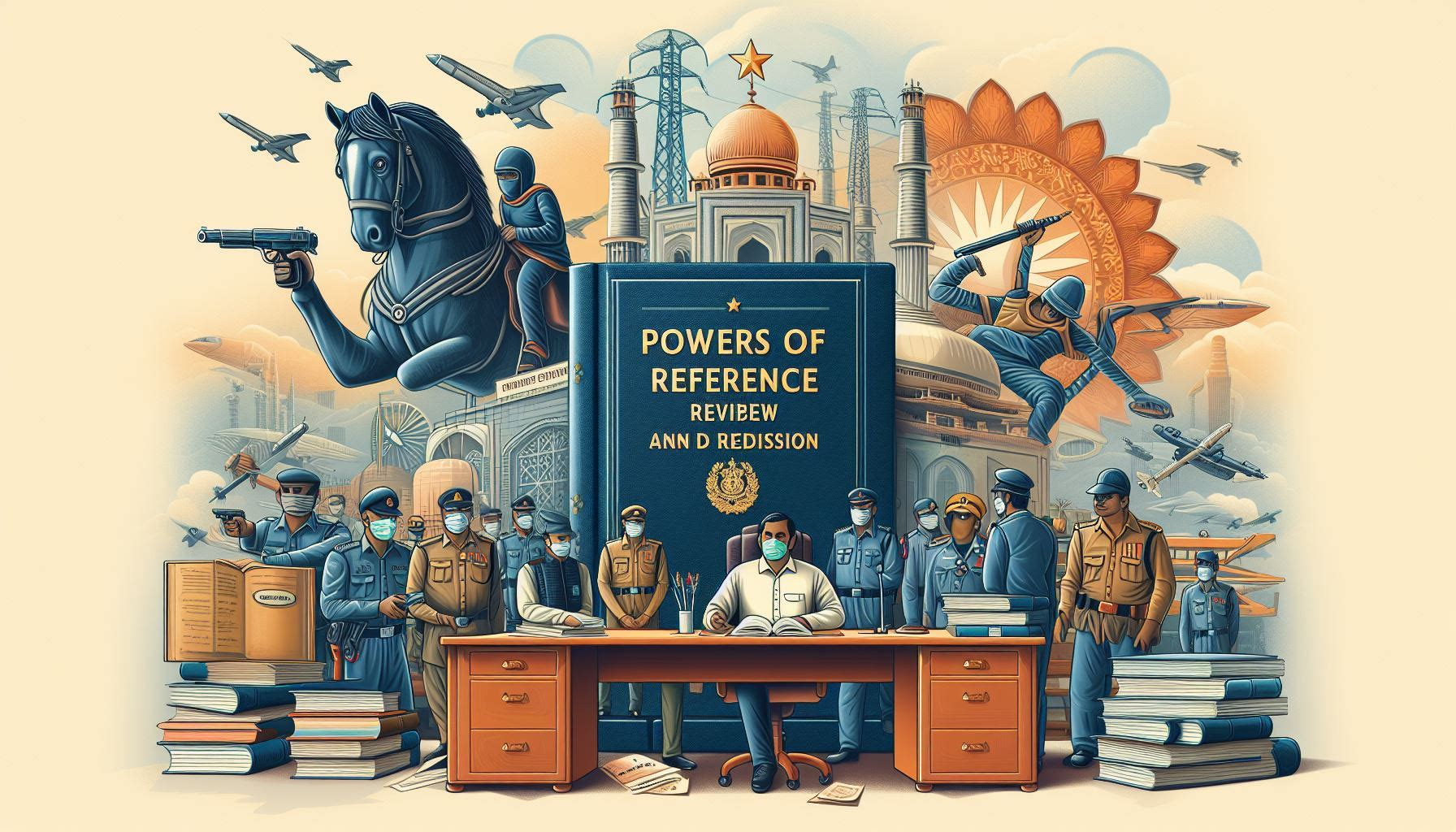Powers of Reference, Review, and Revision under CPC
Understanding the powers of reference, review, and revision under the Civil Procedure Code (CPC) is essential for navigating legal proceedings effectively. This guide offers a comprehensive overview of these powers, with specific reference to Sections 113, 114, and 115 of the CPC. By grasping the nuances of each power, individuals can make informed decisions in their legal pursuits.
Powers of Reference, Review, and Revision: Explained
Reference under Section 113 of CPC
A reference occurs when a court, during the course of a legal proceeding, seeks the opinion or decision of another court or authority on a specific point of law.
Applicability
Section 113 of the CPC empowers a court to make a reference when it encounters a question of law that is substantial and requires clarification.
Process
The court formulates the question of law and refers it to another court or authority. The latter provides its opinion or decision, which the referring court may then consider while adjudicating the case.
Review under Section 114 of CPC
Definition
Review refers to the re-examination of a court’s own order or judgment. It allows the court to correct errors or oversights in its previous decision.
Applicability
Section 114 of the CPC grants the court the power to review its own judgment, provided certain conditions are met.
Grounds for Review
Review may be sought on grounds such as discovery of new evidence, mistake or error apparent on the face of the record, or any other sufficient cause.
Revision under Section 115 of CPC
Definition
Revision entails the examination of an order passed by an inferior court by a superior court. The superior court may either confirm, modify, or set aside the order.
Applicability
Section 115 of the CPC allows a superior court to exercise revisional jurisdiction over an inferior court. However, this power is not an appellate remedy and can only be invoked if the order is erroneous in its entirety.
Grounds for Revision
Revision may be sought on grounds of jurisdictional error, improper exercise of jurisdiction, or a violation of any provision of law.
Instances Where These Powers Are Invoked
Reference
- In complex legal matters involving intricate points of law.
- When there is a lack of precedent or established legal principles.
Review
- When new evidence that could not be produced earlier comes to light.
- To correct any clerical or arithmetical errors in the judgment.
Revision
- When a subordinate court has acted without jurisdiction.
- In cases where the subordinate court has exercised jurisdiction not vested in it by law.
Procedure for Invoking These Powers
Reference
- The court frames the question of law and refers it to the appropriate authority.
- The referring court receives the opinion, which is then considered while adjudicating the case.
Review
- An application for review is filed before the same court that passed the original order.
- The court examines the grounds for review and decides whether a review is warranted.
Revision
- An aggrieved party files a revision petition before the superior court.
- The superior court evaluates the petition and may either confirm, modify, or set aside the order of the subordinate court.
Frequently Asked Questions (FAQs)
Q: Is there a time limit for seeking review or revision under the CPC?
A: Yes, there are time limits specified for seeking review or revision under the CPC. It’s important to adhere to these timelines to ensure that the request is considered.
Q: Can a reference be made to any court or authority?
A: The reference is made to a court or authority that is competent to answer the question of law raised by the referring court.
Q: Can the decision in a revision application be further challenged?
A: The decision in a revision application is final and cannot be further challenged in the same case. However, it may be subject to appeal or revision in exceptional circumstances.
Understanding the powers of reference, review, and revision under the Civil Procedure Code (CPC) is crucial for effective legal representation. By familiarizing oneself with the provisions of Sections 113, 114, and 115, individuals can navigate legal proceedings with confidence. Remember, these powers serve as important mechanisms for ensuring fairness and justice in the legal process.
